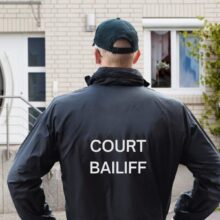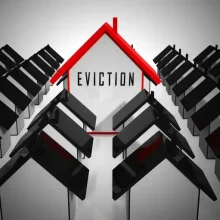Do you have problem tenants? Unpaid rent, damaged property, or dangerous activity? Are you unsure about how to evict tenants legally? Integrated Civil Enforcement is your Government-appointed solution. We offer services in English, Punjabi, Chinese
Tenant Eviction &
Civil Enforcement
Services
Tenants refusing to leave? Unpaid rent? Contracted by the Ministry of Attorney General, our Court Services Team provides safe, effective, and legal eviction solutions across British Columbia.
Eviction and Other Services
Do you have a monetary judgement against a person or company? Let us help you obtain and enforce an Order for Seizure and Sale. From Seizure and removal to auctioning assets, we handle it all.
Our commercial division, Integrated Bailiff Services, can help you with your commercial tenant issues. Click here to be redirected to our Commercial site.
Whether it’s high-end art or a television, we get the maximum value for seized assets. Visit us now to browse our current inventory on the auction block.
When the banks lose, you win. Everything from cars and trucks to travel trailers and boats, we liquidate repossessed assets FAST. Visit us now to get instant access to the largest inventory of repossessed vehicles in BC.
FAQs
How much does it cost to evict tenants from my property?
Costs depend on the time and resources required to gain access to the property and remove the tenants plus their belongings.
Evicting a single tenant with a few personal belongings residing in a small one bedroom basement will be much lower compared to evicting multiple tenants with pets, residing in a fully furnished two story, four bedroom home with a garage packed full of belongings.
Each circumstance varies so we only ask for a nominal deposit to schedule the eviction. After gaining access to the property and assessing the situation, we will be in a better position to let you know if additional payment is required.
How long does the process take?
Once you have received a Writ of Possession from the Supreme Court and selected Integrated Civil Enforcement as the Court Bailiff, we can start the process of scheduling the eviction with our Court Administrators the same day.
What happens if the tenants refuse to leave or act violently?
Our Court Bailiffs are experienced and know how to deal with uncooperative and potentially dangerous tenants. Working on behalf of the Supreme Court, if matters escalate, they have authority to bring in the RCMP to assist in removing the tenants.
Based on the information you provide when scheduling the eviction with our Court Administrators, the Court Bailiff may decide to call the RCMP ahead of arriving at the property so the RCMP is present at the commencement of the eviction.
What happens to the tenant goods and personal possessions?
If tenants are unable to remove their goods and personal possessions, we are required by law to place them in safe storage for a period of 30 days at the landlord’s expense.
May landlords store tenant goods and personal possessions in their own storage units?
No, tenant goods and personal possessions must be removed from the property to another (separate from the landlord property) storage facility so that vacant possession may be provided to the landlord. Receiving vacant possession evidences that the property has been returned to the landlord and the evicted tenant has no legal right to return and could be charged with trespassing should the landlord need to resort to such a remedy.
May the Court Bailiff collect unpaid rent during the eviction?
A Court Bailiff is not permitted to collect unpaid rent during the eviction. Instead, landlords are required to apply for a Monetary Order from the Residential Tenancy Branch. Once granted, the Monetary Order must be served on the tenant. If the debt remains unpaid, a landlord may apply to a Small Claims Court for enforcement of the Monetary Order.
An Order for Seizure and Sale is enforced by the Court Bailiff and empowers them to collect money from the debtor (tenant in this context) and/or seize assets.
Should landlords be present or nearby during the eviction?
Landlords are not permitted to be present and around the property during the eviction. Evictions can become dangerous scenes. While we recognize the personal connection landlords have with their property, it is best to allow the Court Bailiffs to perform their duties without having to worry about violence between landlords and tenants.
Didn't find the answer?
Landlord Intake Form
In order to best serve you, we ask you to provide as many details as possible about the residence. Please answer the below questions to the best of your ability.
One of our intake agents will contact you shortly to initiate next steps.
Don't wait! Contact us today
Head Office - Surrey
New Westminster - Court Services Centre
Have any questions?
Email us with any questions or inquiries or call 844-395-4367. We would be happy to answer your questions and set up a meeting with you.









